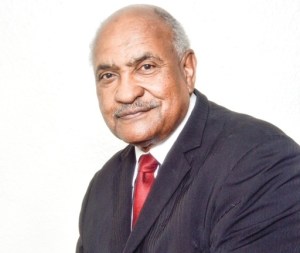By Asha Taylor
Special to the AFRO

Washington, D.C. residents have struggled to enjoy their local waterways for years due to hazardous pollution. Following the enactment of the largest environmental settlement in D.C. history, the Potomac Electric Power Company, also known as Pepco, will be responsible for cleaning up the District’s local rivers, including the Potomac and Anacostia Rivers, Oxon Run, and Rock Creek.
“The watershed has historically suffered from trash, toxins, sewage, runoff, oil, heavy metals and more due to adjacent agricultural, industrial and urban land uses,” according to the United States Environmental Protection Agency.
Pepco has been charged with a total of $57 million dollars for cleanup and penalties associated with pollution of the environment, attributable to the company. Although Pepco is not the only polluter responsible for the state of the D.C.’s water, the settlement is intended to shed light on pollution of District waterways and how companies can be held responsible. As announced by D.C.’s Attorney General Brian L. Schwalb, the goal of this change is to make the future of D.C.’s water safer.
In response to the plan for environmental restoration, residents have expressed varied opinions regarding the future of the environment, specifically the state of the city’s popular Anacostia River.
Along the Anacostia River, Ward 8 of the District is home to a population that is predominantly Black and Brown. Approximately 683,154 people are directly affected by the conditions of the water, as calculated in a demographics profile from the District for the years 2017 to 2021. However, despite their distance from the issue, residents have claimed to witness the poor quality of the water in the nation’s capital.
Wyatt Yankus, a three-year resident of Washington, D.C.’s Columbia Heights neighborhood, spends time at the Anacostia River regularly. Yankus rides his bike along the river and participates in D.C. Sail, a club that sails in the Anacostia River.
“I think cleaning up the Anacostia is great… I don’t know if I would be comfortable swimming in it, but I have spent time on it, or next to it, and it definitely looks better,” said Yankus.
D.C. natives Katherine Hernandez and Erick Martell are both two young residents. They described their experiences at the Anacostia River– specifically– as “stinky.”
“I feel like it depends where you are, like if you are by the restaurants then it is way nicer, but when you go way down, then it is not the best environment,” said Hernandez.
Martell is also a lifelong D.C. resident, but has yet to spend any time near the city’s water.
“I actually have never been , but I heard a lot about it,” said Martell.
Hernandez works with a wilderness program that takes local youth to various sites in the city, known as the City Kids Wilderness Project. In order to build toward a more sustainable future, Hernandez conveyed her desire to push for more youth to learn about and spend time at the Anacostia River, a D.C. staple location. In light of the news regarding a cleanup of the water, Hernandez and Martell were overjoyed.
“Usually I don’t really think about stuff like that and don’t really take serious, but you really realize that it is very damaging to our living,” said Martell.
Organizations such as the Clean Rivers Project, Anacostia Riverkeeper, Anacostia Watershed Society, Potomac Conservancy and the Little Falls Watershed Alliance are among many others that are supporting the initiative to clean up the city’s waterways. Residents can get involved in any of these opportunities to contribute to a cleaner, safer and healthier environment in Washington, D.C.
Northwest resident April Thompson was unaware of the possibilities of a cleanup for the District’s water. Thompson stated that she had never heard of anyone swimming in or enjoying the rivers in the city. However, she explained having a strong desire for there to be “oversight of the cleanup.”
“I do advocate for strong oversight of that process,” Thompsons said. “If there is not strong independent oversight of the cleaning up process, then we are leaving the fox to oversee the henhouse.”
Nonetheless, Thompson, too, is looking forward to spending more time along the water in the future and becoming more educated about the state of her home’s environment.
“This is my city and we should take advantage of everything that is in the city,” said Thompson. “We get so caught up in our daily lives and we move about sometimes with blinders on.”
The post District residents look forward to cleanup of toxic waterways appeared first on AFRO American Newspapers.











